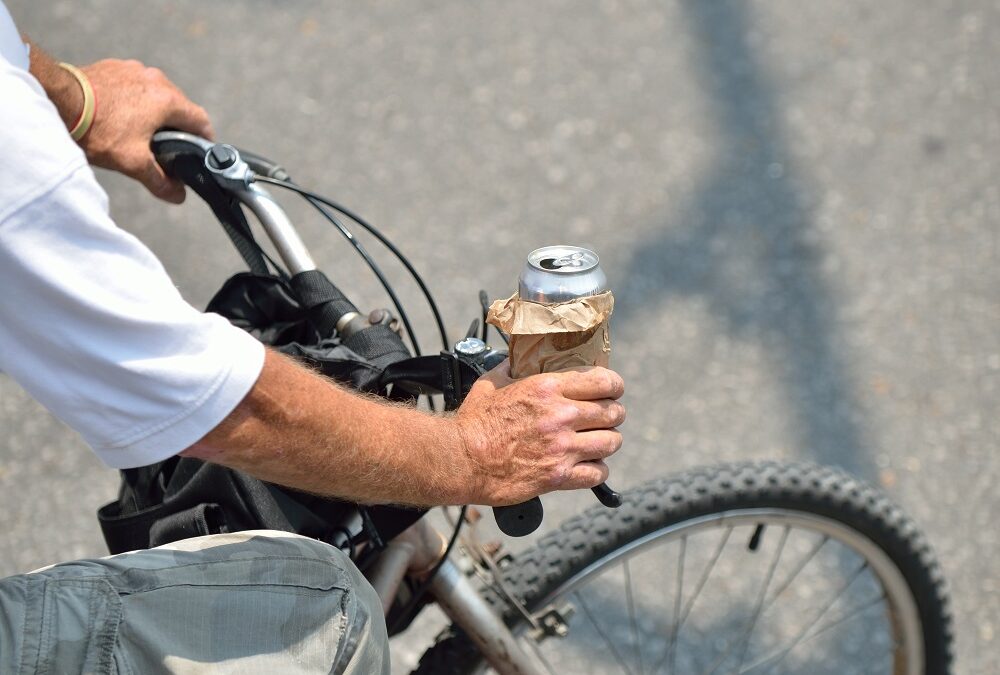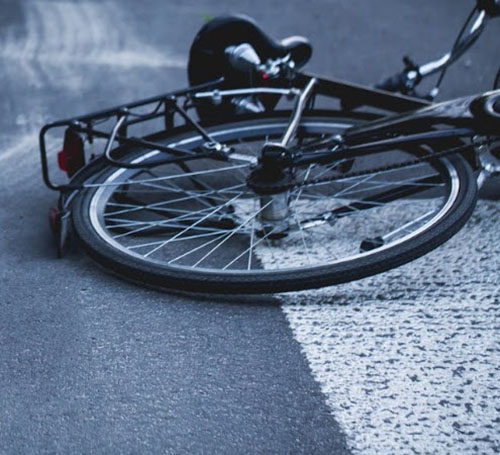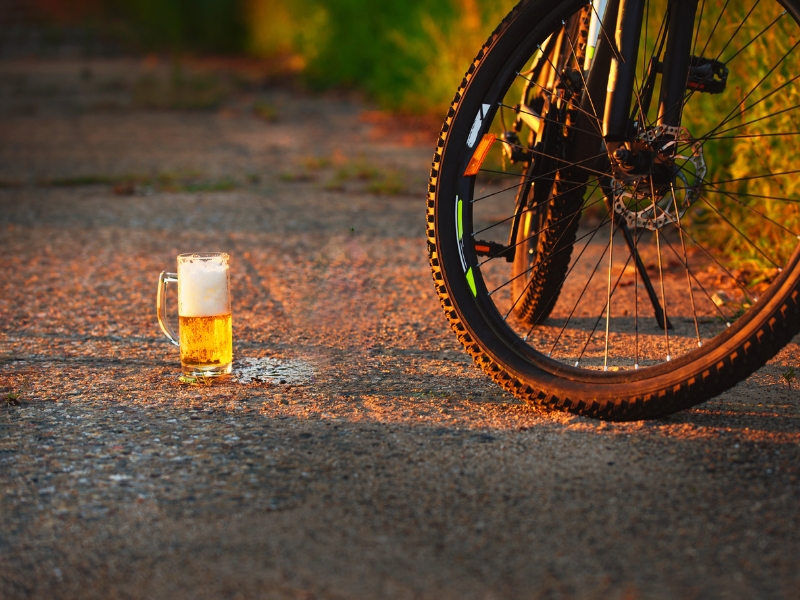We were curious to know if it was possible to get a DWI on a bicycle in Minnesota. After all, biking is a popular mode of transportation and an enjoyable way to explore the beautiful state. So, we dug into the legalities and discovered some surprising information. In Minnesota, it turns out that you can indeed be charged with a DWI while riding a bicycle. Although the penalties may differ from those for driving a motor vehicle, it’s important to understand the regulations surrounding biking under the influence. Whether you’re a cyclist or just curious about the law, this article provides an intriguing look into the intersection of biking and DWI charges in Minnesota.
Minnesota DWI Laws
Definition of DWI
In Minnesota, DWI stands for Driving While Intoxicated. It is a serious offense that occurs when a person operates a motor vehicle while under the influence of alcohol or drugs. The legal limit for blood alcohol concentration (BAC) in Minnesota is 0.08% for individuals aged 21 and older. For commercial vehicle drivers, the limit is 0.04%, and for individuals under the age of 21, any presence of alcohol is considered illegal.
Penalties for DWI
The penalties for DWI offenses in Minnesota can vary depending on several factors, including prior convictions, level of intoxication, and presence of aggravating circumstances. First-time offenders may face up to 90 days in jail, a fine of up to $1,000, license suspension, and potential enrollment in an alcohol education program. Repeat offenders or those with high BAC levels may face more severe penalties, including longer jail sentences, higher fines, and mandatory ignition interlock device installation.
Different Types of DWI Offenses
Minnesota categorizes DWI offenses into different levels based on the severity and circumstances of the offense. Fourth-degree DWI is the least severe, while first-degree DWI is the most serious. Aggravating factors such as having a child in the vehicle or causing bodily harm or death can elevate the offense to a higher degree. The penalties increase with each degree, and repeat offenders face harsher consequences.
Applicability of DWI Laws to Bicycles
Motor Vehicle Definition
The applicability of DWI laws in Minnesota to bicycles depends on the interpretation of the term “motor vehicle.” According to Minnesota statutes, a motor vehicle is defined as any vehicle that is self-propelled, including motorcycles, cars, trucks, and even motorized bicycles. However, it remains unclear whether this definition includes regular bicycles that rely solely on human power.
Operation of a Bicycle
Under normal circumstances, the operation of a bicycle does not fall under the jurisdiction of DWI laws in Minnesota. Bicycles are typically exempt from DWI laws because they lack a motorized propulsion system. However, there are certain scenarios where intoxicated operation of a bicycle may lead to legal repercussions.
Intoxicated Operation of a Bicycle
Although operating a regular bicycle while intoxicated may not result in a DWI charge, it can still have legal implications. Intoxicated cyclists can still be charged with public intoxication or disorderly conduct if their behavior poses a risk to public safety. Moreover, an intoxicated cyclist who causes an accident or injures someone may face civil or criminal penalties unrelated to DWI charges.

This image is property of i0.wp.com.
Motor Vehicle Definition
Minnesota Statutes
Minnesota Statute 169A.03 provides the legal definition of a motor vehicle. According to this statute, a motor vehicle is any self-propelled vehicle “designed to operate primarily on highways” and includes motorized bicycles. However, this definition does not explicitly mention regular bicycles that rely solely on human power.
Legal Interpretation
The interpretation of the motor vehicle definition in Minnesota has been the subject of debate when it comes to bicycles. While some argue that regular bicycles are not considered motor vehicles, others contend that the term “primarily” in the statute could potentially include bicycles as they are allowed on roadways. Ultimately, the interpretation may vary depending on the specific circumstances and the discretion of law enforcement.
Operation of a Bicycle
Laws Regarding Bicycle Operation
Minnesota has specific laws in place that regulate the operation of bicycles on roadways. Cyclists are subject to the same traffic rules and regulations as motor vehicle operators, including obeying traffic lights, stop signs, and yielding to pedestrians. It is crucial for cyclists to ride in the same direction as traffic, use appropriate hand signals, and maintain proper lighting and reflectors during nighttime riding.
Impact on DWI Charges
Since bicycles do not fall within the definition of a motor vehicle for DWI purposes, the operation of a bicycle while under the influence of alcohol or drugs generally does not lead to DWI charges. However, it is essential to remember that impaired cycling can still result in other legal consequences if it endangers public safety or property.

This image is property of arechigo-stokka.com.
Intoxicated Operation of a Bicycle
Legal Implications
Although riding a bicycle while intoxicated may not result in a DWI charge, it can lead to other legal implications. Public intoxication and disorderly conduct laws may come into play if an intoxicated cyclist’s behavior creates a disturbance or poses a risk to others. Additionally, if an intoxicated cyclist causes an accident or harms someone, they may face civil or criminal liability unrelated to DWI charges.
Proving Intoxication on a Bicycle
If law enforcement suspects an individual of cycling under the influence, they have the authority to conduct field sobriety tests. These tests, such as the walk-and-turn or one-leg stand, can help officers assess impairment. However, without the presence of a motor vehicle, officers may face challenges in establishing probable cause to require chemical tests, such as breathalyzer or blood tests, as these tests typically pertain to motor vehicle drivers.
Case Precedents
Previous DWI Cases
The Minnesota court system has seen numerous DWI cases involving motor vehicle operators over the years. These cases have established legal precedence and helped shape the interpretation of DWI laws. They serve as valuable references for understanding the consequences and legal implications associated with impaired driving.
Bicycle-Specific Cases
In contrast to DWI cases involving motor vehicles, there is a scarcity of specific legal cases in Minnesota that address intoxicated bicycle operation. The limited number of cases reflecting this specific scenario demonstrates the unique legal challenges such situations present. It also highlights the need for further clarification and guidance on the applicability of DWI laws to bicycles in Minnesota.

This image is property of kellerlawoffices.com.
Enforcement and Arrest
Police Discretion
Law enforcement officers in Minnesota have discretion when it comes to enforcing DWI laws. They may choose to arrest a cyclist for cycling under the influence if they deem it necessary to protect public safety, even if formal DWI charges may not apply. The decision to arrest an intoxicated cyclist depends on various factors, such as the level of impairment, observed behavior, and the potential risk posed to others.
Reasonable Suspicion
To stop and detain a cyclist, law enforcement officers need reasonable suspicion that a violation has occurred, such as erratic cycling, failure to obey traffic laws, or visible signs of impairment. If reasonable suspicion is established, officers can further investigate the situation and potentially conduct field sobriety tests to evaluate the cyclist’s level of intoxication.
Field Sobriety Tests
Field sobriety tests are standardized assessments designed to evaluate a person’s physical and mental impairment. While these tests are commonly used in motor vehicle DWI cases, the applicability and effectiveness of these tests may be subject to debate when it comes to intoxicated cyclists. The absence of a motorized vehicle and the different physiological demands of cycling may pose challenges in accurately assessing impairment through traditional field sobriety tests.
Chemical Tests
Chemical tests, such as breathalyzer or blood tests, are commonly used to determine a person’s BAC. However, these tests are primarily intended for motor vehicle drivers and are subject to specific legal requirements. In the case of intoxicated cycling, law enforcement may face challenges in mandating chemical tests due to the lack of specific legislation surrounding their use in bicycle-related situations.
Consequences for Bicycle DWI
License Suspension
Unlike DWI cases involving motor vehicles in Minnesota, bicycle DWI offenses generally do not result in license suspension because regular bicycles do not require a driver’s license. However, it is important to note that a cyclist who loses their motor vehicle license due to DWI may still face limitations or restrictions if they choose to operate a bicycle.
Criminal Record
Even without DWI charges, the legal implications of operating a bicycle while intoxicated can result in a criminal record. Convictions for public intoxication or disorderly conduct can leave a lasting mark and may have adverse consequences, such as difficulty finding employment or housing in the future.
Ignition Interlock Program
Minnesota’s ignition interlock program, which requires the installation of a breathalyzer device in vehicles to prevent intoxicated driving, does not apply to bicycles. The program is specifically designed for motor vehicles and aims to curb DWI recidivism. As bicycles do not fall under the scope of this program, there is no mandatory requirement for cyclists to install an ignition interlock device.
Increased Penalties for Repeat Offenders
While bicycle DWI offenses do not result in the same penalties as motor vehicle DWIs, repeat offenders may still face increased consequences. Multiple convictions for public intoxication or disorderly conduct can lead to more severe penalties, including longer jail sentences, higher fines, and an escalation of other legal repercussions associated with these offenses.

This image is property of www.stpaulduiattorney.com.
Comparison to Other States
Similar DWI Regulations
While Minnesota has specific laws addressing the operation of bicycles under the influence, other states may have similar or identical regulations. Some states include bicycles in their motor vehicle definitions for DWI purposes, subjecting cyclists to the same penalties as motor vehicle drivers. It is essential for cyclists to familiarize themselves with the specific laws and regulations in their respective states to understand the potential consequences of operating a bicycle while intoxicated.
Variances in Laws
Laws regarding bicycle DWI offenses can vary significantly from state to state. Some states have more lenient regulations, while others take a more stringent approach. It is crucial for cyclists to research and understand the laws in their respective jurisdictions to ensure compliance and avoid potential legal issues.
Public Awareness and Education
Minnesota Department of Public Safety
The Minnesota Department of Public Safety plays a vital role in promoting public safety and raising awareness of the dangers of impaired driving. Through various initiatives and campaigns, they strive to educate the public about the risks associated with DWI, encourage responsible behaviors, and provide resources for individuals seeking assistance with alcohol or drug-related issues.
Campaigns and Initiatives
Public awareness campaigns, such as “Drive Sober or Get Pulled Over” and “Buzzed Driving Is Drunk Driving,” are aimed at changing attitudes and behaviors regarding impaired driving. The Minnesota Department of Public Safety collaborates with law enforcement agencies, community organizations, and the public to implement these initiatives and promote safer roads for all users.
In conclusion, while operating a regular bicycle while intoxicated may not result in DWI charges in Minnesota, it can still have legal implications. Intoxicated cyclists may face charges related to public intoxication, disorderly conduct, or civil liability if their actions endanger others. It is crucial for cyclists to understand the laws and regulations specific to their jurisdiction and prioritize public safety by refraining from cycling while impaired.

This image is property of www.dwiminneapolislawyer.com.




